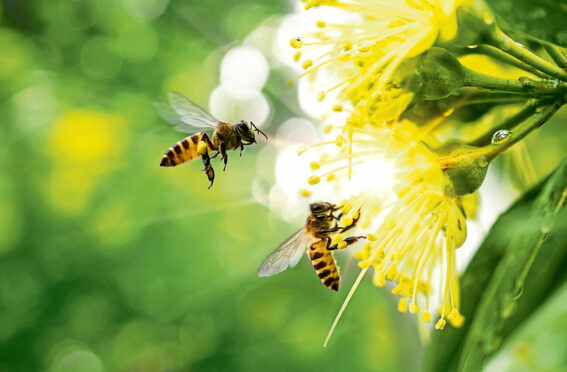
In the natural world, insects don’t receive much attention but did you know bugs are responsible for everything from growing chocolate to cleaning water systems?
Here, Vicki Hird, author of new book Rebugging The Planet, tells Alice Hinds the Honest Truth about brilliant bugs.
What is “insectageddon” and why will it have a devastating global impact?
The idea of Rebugging The Planet came to me when I saw how research was revealing alarming crashes in bug populations. Extinctions are already happening.
Lost habitats like woods and hedgerows, too many chemicals, climate change and many other factors are making it hard for the tiny beasts to survive and thrive. I knew this would have a major knock-on impact on us and the wildlife we love in so many ways – from essential food and fabrics to water and waste systems.
But all is not lost – if we all take action and demand our politicians and businesses act. And that is what the book aims to do, get you so excited about all the bugs – so you are inspired to do something, small or large.
Is it true we could live in a world without chocolate if certain bugs became extinct?
Chocolate is a bit of an essential food item for me, so it was fascinating to find out how delicate the system was for its production.
The tiny flowers on cacao trees, the fruits of which are the source of chocolate, need to be pollinated by equally tiny midges and protected under a larger tree canopy.
As climate change affects weather patterns there is a risk to this delicate relationship, already threatened by industrial farming, removal of forests and overuse of pesticides.
Cocoa farming provides a critical income for many tropical regions, so tackling these threats is vital. Life without chocolate is hard to imagine.
What is the sea strider, and why is it so special?
Just one insect lives entirely in the open ocean – the sea strider – though lots of other types of important spineless beasts do, from crabs and octopus to the zillions of zooplankton that provide food for fish and other ocean creatures and us.
These sea striders look extraordinary with huge legs that allow them to run 1 metre per second – that’s fast for an animal 6mm long! They eat sea creatures and dead jellyfish and they are in turn vital food for sea birds.
Why are bees so valuable?
Bees are responsible for both honey and for pollinating more than a third of our food crops, from coffee to tomatoes.
They have evolved with flowering plants, getting nectar and pollen and helping the plants fertilise successfully. We can’t do without them.
Wild bees, farmed honey bees and many other bugs are critical pollinators.
To replace this by hand or, worse still, with “robotic bees” would cost billions, and result in major pollution. Why not protect the wild bees which do it for free? They are self-replicating and don’t pollute so it’s win-win.
What is your favourite insect and why?
It’s very hard to pick one! I have a huge fondness for ants – such sociable, smart, communicative insects, but I would have to say the cockchafer, a large, harmless bumbling beetle with extraordinary antennae.
It’s beautiful.
What is the most interesting fact you unearthed while researching your book?
For someone who knew a fair bit already, I was constantly amazed by all the incredible things bugs do but probably most impressed by the social insects’ – like bees, ants and termites – organisational, communications and construction skills.
The have just brilliant air and temperature control, hugely complex communication systems using chemicals, sounds, visuals and the sheer size of what they can create…in Brazil there is a still-living 4,000-year-old termite community that stretches to 200 million mounds covering an area the size of Great Britain. We can learn so much from such bugs.
Rebugging The Planet: The Remarkable Things That Insects (And Other Invertebrates) Do – And Why We Need To Love Them More, Chelsea Green Publishing, £12.99

Enjoy the convenience of having The Sunday Post delivered as a digital ePaper straight to your smartphone, tablet or computer.
Subscribe for only £5.49 a month and enjoy all the benefits of the printed paper as a digital replica.
Subscribe